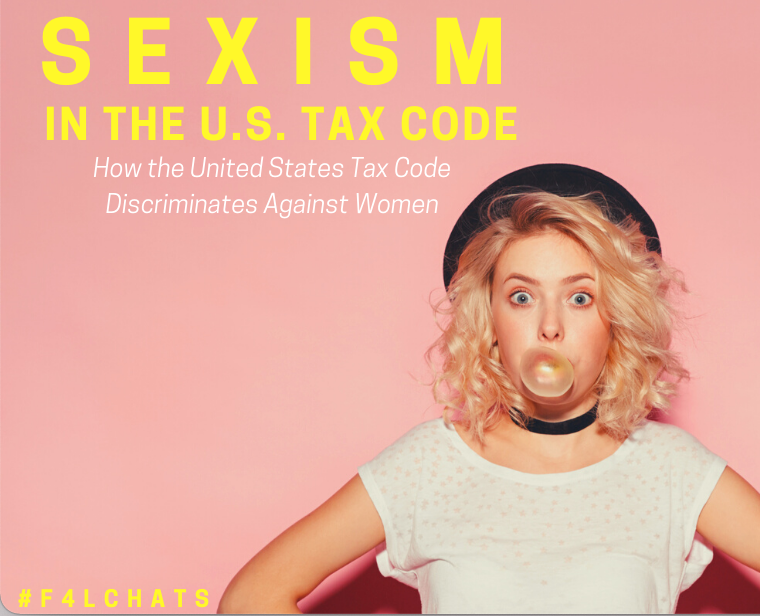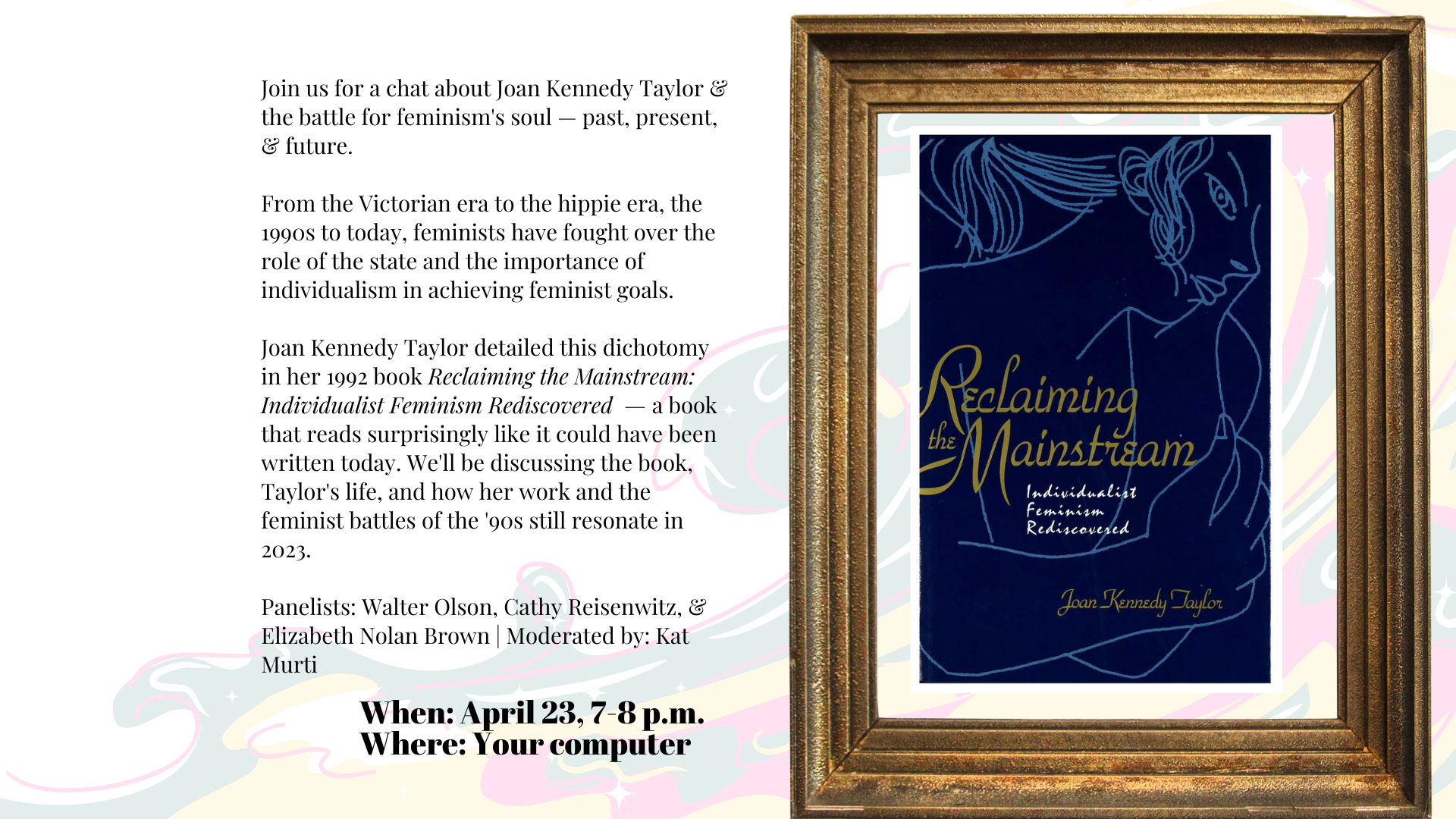Like many other supposedly gender neutral policies, the U.S. tax code disproportionately negatively impact women.
The widely-used system of joint filing taxes was instituted in 1948 to incentivize women who had joined the workforce during World War II to relinquish their jobs to returning soldiers and go back to homemaking instead.
Despite the normalization of dual income households over time, modern tax policy continues to push married women at virtually every income level to work fewer hours than they otherwise would, or to stay out of the labor force entirely—a major contributing factor to the gender pay gap.
On Tuesday, May 11th at 7:00 p.m. ET, join Cato Institute’s Erin Partin and liberty activist Aeris Stewart for a discussion of sexism in the tax code, moderated by Feminists for Liberty’s Elizabeth Nolan Brown and Kat Murti.
Audience members will be invited to ask questions and join the discussion as well.
Start asking your questions on Twitter now using #F4Lchats!

